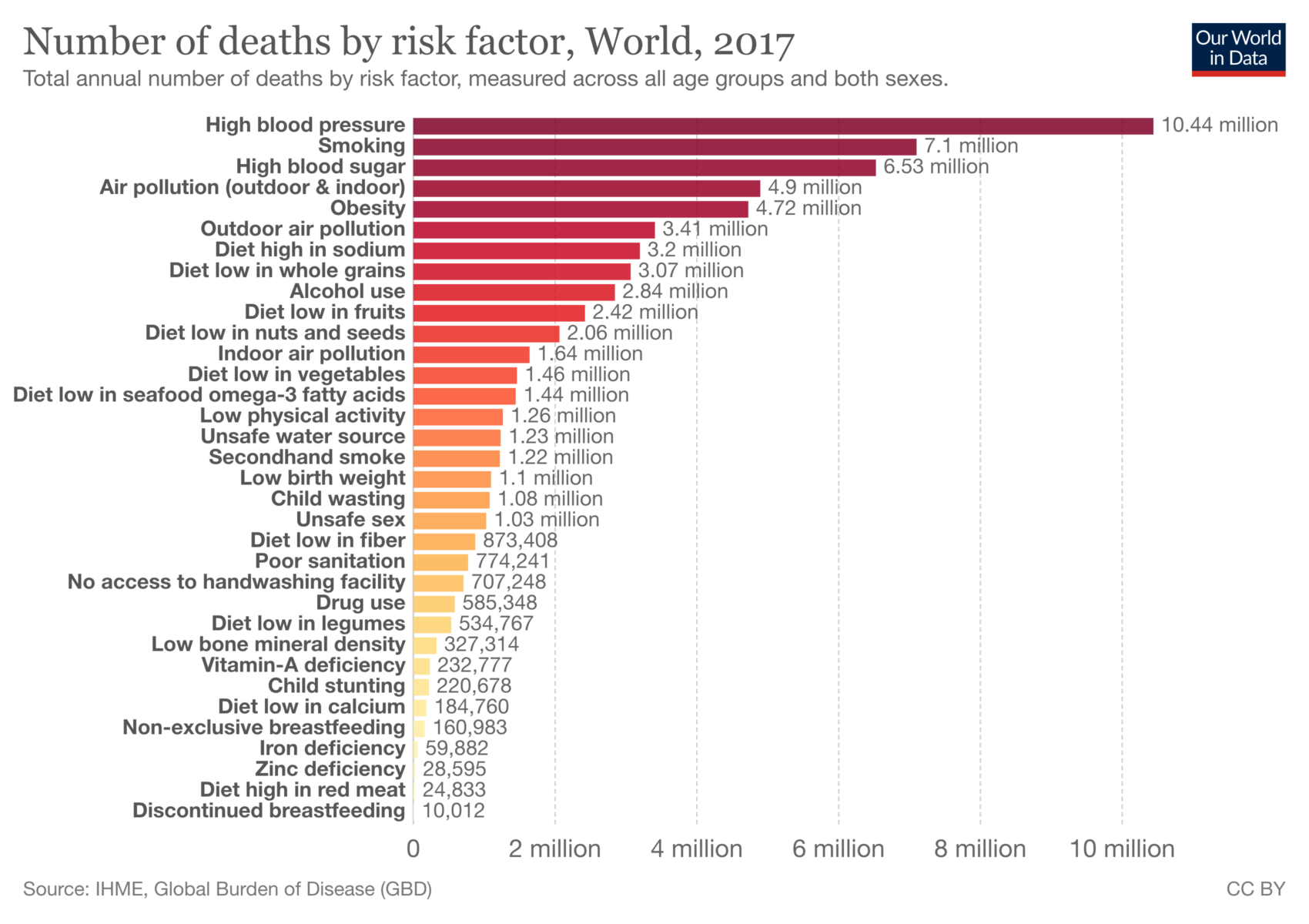Economy
Racism is ProfitableSince the first colonizers arrived in the…
Racism is Profitable
Since the first colonizers arrived in the United States to this very moment, wealthy elites have used the tools of theft, exclusion, and exploitation to expand their wealth and power at the detriment of Black, Latinx, Indigenous people, and marginalized people of color.It all boils down to this simple truth: Racism is profitable.
The profitability of racism sparks a vicious cycle called the Oppression Economy:Elite institutions are motivated to keep suppressing the economic vitality of people of color. That economic oppression in turn hinders their political power, and that political oppression kneecaps their ability to change the system.
This cycle plays out in every aspect of our economy and is particularly apparent in mass incarceration.The criminalization of people of color is a multibillion-dollar industry: In 2017 alone, mass incarceration cost $182 billion; trapping mostly low-income Black and Latinx people in a cycle of economic and political disenfranchisement.
If we follow the money, we find that some of America’s largest banks, including Wells Fargo, Bank of America, and JPMorgan Chase, have all extended millions of dollars in credit lines to for-profit prison operators like GEO Group and CoreCivic.
The unregulated operations of prisons has increasingly mandated cheap service for maximum profit. For example, bail bonds companies, telecommunications, food, and commissary companies gouge both those incarcerated and their families.The exploitation doesn’t stop upon release from prison.
The suppression of economic vitality of people of color is just beginning. Because of discrimination, formerly incarcerated people face an unemployment rate of 27 percent — higher than the total U.S. unemployment rate during any historical period, including during this pandemic and the Great Depression.
Fines and fees associated with the criminal “justice” system have placed $50 billion in debt on the shoulders of approximately 10 million people who have been through the system. To make matters worse, many states bar people convicted of felonies from receiving any government assistance.That’s just incarceration.
Over the past four decades, the cost of policing in the U.S. has skyrocketed, almost tripling from $42.3 billion in 1977 to $114.5 billion in 2017. Of the 100 largest cities in America, the nine police forces that kill people at the highest rate per population all take up over 30 percent of their cities’ budgets — leaving paltry resources to invest in housing, education, or health care.
This deliberate economic oppression suppresses political power of people of color, weakening their constitutional right to change the rules of a system that regulates whether or not profit can be derived from racism.
In our current system, the wealthy elite use their purchased political power to manipulate the system for their own gain at the expense of people of color.
Let’s turn back to people who are incarcerated. In 48 states, those who are currently or formerly incarcerated face restrictions on their right to vote. Yet, inmates count as residents of where they are incarcerated, rather than their hometowns. That means people in prison have no representation, and are used as pawns to skew representational power towards the largely white, rural areas that house prisons.
This leaves incarcerated people’s hometowns under-represented. The restrictions on voting power don’t end upon release. 6.1 million people are prevented from casting a ballot due to a prior felony conviction, and 1 in 13 Black people have lost their right to vote due to felony disenfranchisement, compared to 1 in 56 non-Black people.
It’s a never-ending cycle that has been churning for centuries: the profitability of racism motivates elite institutions to continue economic oppression of people of color that in turn hinders their political power, and that political oppression kneecaps their ability to change the system in which racism is so profitable.
So how do we break the cycle?
Let’s start with supporting candidates and pressuring elected officials at every level of government who will support bold policies that dismantle the Oppression Economy and build a Liberation Economy — and remove those that don’t.
To end the Oppression Economy, our government must end the criminalization of people of color, end their political suppression, and curb runaway corporate power.
And, to build a Liberation Economy our government must guarantee that all people of color have access to basic economic rights like guaranteed income and employment, universal health care, guaranteed housing, a free college education and generational wealth.
This Liberation Economy is within our power to create. As Teddy Roosevelt said, “we are the government.” It does not belong to the corporations and the plutocrats that currently control them. It belongs to us, and it is within our power to take it back.
We can break this cycle, if we act together.
Let’s get to work.
Economy
6 Crucial Races That Will Flip the SenateThis November, we have…
6 Crucial Races That Will Flip the Senate
This November, we have an opportunity to harness your energy and momentum into political power and not just defeat Trump, but also flip the Senate. Here are six key races you should be paying attention to.
1. The first is North Carolina Republican senator Thom Tillis, notable for his “olympic gold” flip-flops. He voted to repeal the Affordable Care Act, then offered a loophole-filled replacement that excluded many with preexisting conditions. In 2014 Tillis took the position that climate change was “not a fact” and later urged Trump to withdraw from the Paris Climate Accord, before begrudgingly acknowledging the realities of climate change in 2018. And in 2019, although briefly opposing Trump’s emergency border wall declaration, he almost immediately caved to pressure.
But Tillis’ real legacy is the restrictive 2013 voter suppression law he helped pass as Speaker of the North Carolina House. The federal judge who struck down the egregious law said its provisions “targeted African Americans with almost surgical precision.”
Enter Democrat Cal Cunningham, who unlike his opponent, is taking no money from corporate PACs. Cunningham is a veteran who supports overturning the Supreme Court’s disastrous Citizens United decision, restoring the Voting Rights Act, and advancing other policies that would expand access to the ballot box.
2. Maine Senator Susan Collins, a self-proclaimed moderate whose unpopularity has made her especially vulnerable, once said that Trump was unworthy of the presidency. Unfortunately, she spent the last four years enabling his worst behavior. Collins voted to confirm Trump’s judges, including Brett Kavanaugh, and voted to acquit Trump in the impeachment trial, saying he had “learned his lesson” through the process alone. Rubbish.
Collins’ opponent is Sara Gideon, speaker of the House in Maine. As Speaker, Gideon pushed Maine to adopt ambitious climate legislation, anti-poverty initiatives, and ranked choice voting. And unlike Collins, Gideon supports comprehensive democracy reforms to ensure politicians are accountable to the people, not billionaire donors.
Another Collins term would be six more years of cowardly appeasement, no matter the cost to our democracy.
3. Down in South Carolina, Republican Senator Lindsey Graham is also vulnerable. Graham once said he’d “rather lose without Donald Trump than try to win with him.” But after refusing to vote for him in 2016, Graham spent the last four years becoming one of Trump’s most reliable enablers. Graham also introduced legislation to end birthright citizenship, lobbied for heavy restrictions on reproductive rights, and vigorously defended Brett Kavanaugh. Earlier this year, he said that pandemic relief benefits would only be renewed over his dead body.
His opponent, Democrat Jaime Harrison, has brought the race into a dead heat with his bold vision for a “New South.” Harrison’s platform centers on expanding access to healthcare, enacting paid family and sick leave, and investing in climate resistant infrastructure.
Graham once said that if the Republicans nominated Trump the party would “get destroyed,” and “deserve it.” We should heed his words, and help Jaime Harrison replace him in the Senate.
4. Let’s turn to Montana’s Senate race. The incumbent, Republican Steve Daines, has defended Trump’s racist tweets, thanked him for tear-gassing peaceful protestors, and parroted his push to reopen the country during the pandemic as early as May.
Daine’s challenger is former Democratic Governor Steve Bullock. Bullock is proof that Democratic policies can actually gain support in supposedly red states because they benefit people, not the wealthy and corporations. During his two terms, he oversaw the expansion of Medicaid, prevented the passage of union-busting laws, and vetoed two extreme bills that restricted access to abortions.The choice here, once again, is a no-brainer.
5. In Iowa, like Montana, is a state full of surprises. After the state voted for Obama twice, Republican Joni Ernst won her Senate seat in 2014. Her win was a boon for her corporate backers, but has been a disaster for everyone else.
Ernst, a staunch Trump ally, holds a slew of fringe opinions. She pushed anti-abortion laws that would have outlawed most contraception, shared her belief that states can nullify federal laws, and has hinted that she wants to privatize or fundamentally alter social security “behind closed doors.”
Her opponent, Democrat Theresa Greenfield, is a firm supporter of a strong social safety net because she knows its importance firsthand. Union and Social Security survivor benefits helped her rebuild her life after the tragic death of her spouse. With the crippling impact of coronavirus at the forefront of Americans’ minds, Greenfield would be a much needed advocate in the Senate.
6. In Arizona, incumbent Senate Republican Martha McSally is facing Democrat Mark Kelly. Two months after being defeated by Democrat Kyrsten SINema for Arizona’s other Senate seat, McSally was appointed to fill John McCain’s seat following his death. Since then, she’s used that seat to praise Trump and confirm industry lobbyists to agencies like the EPA, and keep cities from receiving additional funds to fight COVID-19. As she voted to block coronavirus relief funds, McSally even had the audacity to ask supporters to “fast a meal” to help support her campaign.
Mark Kelly, a former astronaut and husband of Congresswoman Gabby Giffords, became a gun-control activist following the attempt on her life in 2011. His support of universal background checks and crucial policies on the climate crisis, reproductive health, and wealth inequality make him the clear choice.
These are just a few of the important Senate races happening this year.
In addition, the entire House of Representatives will be on the ballot, along with 86 state legislative chambers and thousands of local seats.
Winning the White House is absolutely crucial, but it’s just one piece of the fight to save our democracy and push a people’s agenda. Securing victories in state legislatures is essential to stopping the GOP’s plans to entrench minority rule through gerrymandered congressional districts and restrictive voting laws — and it’s often state-level policies that have the biggest impact on our everyday lives. Even small changes to the makeup of a body like the Texas Board of Education, which determines textbook content for much of the country, will make a huge difference.
Plus, every school board member, state representative, and congressperson you elect can be pushed to enact policies that benefit the people, not just corporate donors.
This is how you build a movement that lasts.
Economy
Fear & Data
Fear.
It is a key driver of behavior, whether in markets (Fear & Greed), politics (Tribalism), Health care (Anti-Vaxxers) or whatever (FOMO).
Fear is a great memory aid. For most of human history, people communicated not via the written word, but by oral storytelling. Hence, we are primed for emotional, memorable narratives. Looking at data and performing cold, calculated analyses is a learned, not innate, skill.
Social media understands this. Is it any surprise the algorithms of Facebook surfaces the most extreme views and claims? Look at what plays directly into that evolutionary trait, via clickbait and manufactured outrage. With our perfect hindsight bias, isn’t it obvious how inevitable this was?
Irrational fear is a driver of much of what we think and do. Often reflexively, frequently without thought. Contemplate what this means as you process new pandemic information, relying on mental models, performing data analysis.
How often do we react to a headline we disagree with, but after diving into the data underneath, it changes our mind? Not often enough, but on those rare occasions when that happens, it is a sign that you are doing this correctly. Our first reaction is the thoughtless programmed emotional response; the second is the more complex analytical result. It is your lizard brain (basal ganglia and brainstem) versus developed frontal lobe (neocortex).
Which brings us back to Covid-19. The probability of anyone of person getting this disease and then suffering a fatality is exceedingly low. I don’t want to suggest things are statistically normal, and you should definitely do things to stay safe: wear masks, socially distance, wash your hands frequently, and not touch your face. You can be (relatively) safe by doing these simple things.
But excess fear is driving all sorts of negative consequences, including stress, psychoses, economic damage, relationship issues, and health problems. This is counter-productive.
One day, this pandemic will end. Then we can all go back to worrying about cholesterol, high blood pressure and sugar.
Previously:
Over/Under Represented: Causes of Death in the Media (June 13, 2020)
Fearing the Dramatic, Complacent for the Mundane (April 29, 2020)
Denominator Blindness, Shark Attack edition (February 5, 2020)
Shark Attacks Illustrate an Investing Problem (February 4, 2020)
MiB: Danny Kahneman (February 11, 2020)
Crashes & Terrorists & Sharks – Oh, My! (November 9, 2020)
How’s Your MetaCognition? (August 16, 2020)

Source: Our World In Data
The post Fear & Data appeared first on The Big Picture.
Economy
COVID-19 Tearing Families Apart
COMMENT: Mart, this is tearing my family apart. I can no longer even speak to my son. He is against Trump simply because he does not like him personally or his tweets. I try to explain this should not turn on those issues. This is a war for your future. My son will not listen and he will vote against himself and is too brainwashed to see the bigger picture.
GA
ANSWER: I know of many people in the same boat. Even two of my business partners had ended all communication with their children. My partner, who died about 20 years ago, insisted I make sure everything went to his second wife and nothing to his children in the event of his death. These things are sad, but the brainwashing that has been taking place is thicker than even blood. It is very sad. But this is precisely what was carried out in East Germany. They deliberately tried to turn the children against their parents. That was a strategic tool of the left. This entire COVID-19 scheme is dividing the country. One father wrote in and said his son said all he cared about was taxes. They have no idea what their vote will mean in this election.
 This is an agenda that is well organized, and it is a major effort as was the Communist Revolution of 1848 and then 1917/1918. People know about the Weimar Republic and the hyperinflation of the 20s, but it was a revolution in Germany in 1918 that overthrew the government, even boldly asked Russia to come to absorb Germany so they could enjoy the Communist Utopia, that led to the chaos. People hoarded all wealth and converted to foreign currencies.
This is an agenda that is well organized, and it is a major effort as was the Communist Revolution of 1848 and then 1917/1918. People know about the Weimar Republic and the hyperinflation of the 20s, but it was a revolution in Germany in 1918 that overthrew the government, even boldly asked Russia to come to absorb Germany so they could enjoy the Communist Utopia, that led to the chaos. People hoarded all wealth and converted to foreign currencies.
The idealistic fools who were brainwashed were left penniless. This is the fate of your son, sad to say. Those with any wealth, the older people, understood what was at stake. They prepared. The youth, believing in Utopia, suffered from hyperinflation. When the new currency was finally created in 1925, it was backed by real estate — not gold which had vanished thanks to hoarding.
Unfortunately, the youth are blind. Biden is a puppet. He will surrender the sovereignty to the United Nations and this is why they are fighting so hard. Michael Bloomberg is very evil. He is trying to pay all the fines, $20 million, of felons in Florida with the implication they will vote for Biden. I really do not want to live in a world where Bloomberg has any power whatsoever. The nice things will be to see Gates, Zuckerberg, and Bloomberg, among a long list of others supporting this new tyranny, will then become the targets are stripped of their wealth as the final phase takes place — nationalization of companies.
There is nothing you can do. They have been brainwashed. It is hard to bear. But we simply must understand that they are creating this new world and they will ONLY learn from experience. We cannot shelter them. To walk, they have to fall many times. This can be irreversible. Unless they see the error of their ways soon, then the split becomes permanent. The more you try to show them, the more they will not listen. That’s why it is so important to pay attention to what they are being told in school.
-
 Business2 months ago
Business2 months agoBernice King, Ava DuVernay reflect on the legacy of John Lewis
-
World News2 months ago
Heavy rain threatens flood-weary Japan, Korean Peninsula
-
 Technology2 months ago
Technology2 months agoEverything New On Netflix This Weekend: July 25, 2020
-
Finance4 months ago
Will Equal Weighted Index Funds Outperform Their Benchmark Indexes?
-
Marketing Strategies9 months ago
Top 20 Workers’ Compensation Law Blogs & Websites To Follow in 2020
-
 World News8 months ago
World News8 months agoThe West Blames the Wuhan Coronavirus on China’s Love of Eating Wild Animals. The Truth Is More Complex
-
Economy11 months ago
Newsletter: Jobs, Consumers and Wages
-
 Finance10 months ago
Finance10 months ago$95 Grocery Budget + Weekly Menu Plan for 8



